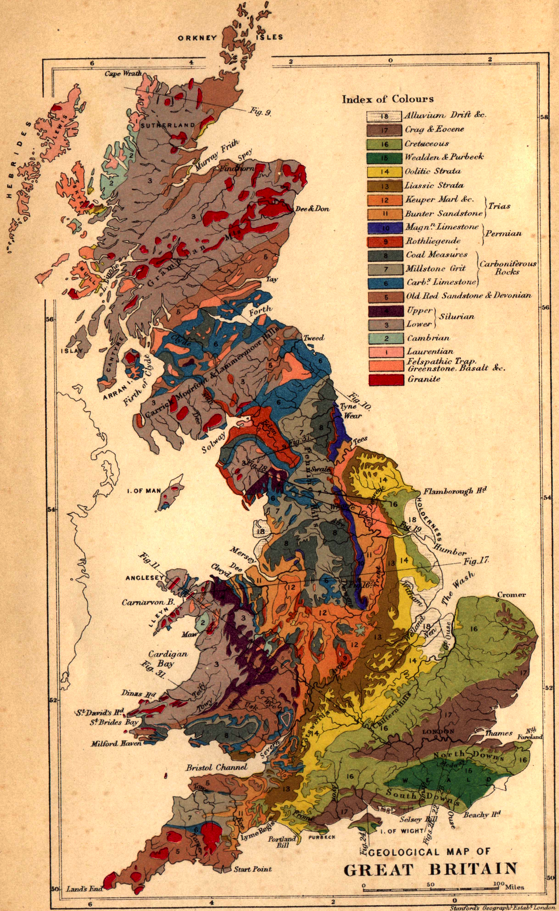
“Bring me my bow of burning gold!
Bring me my arrows of desire!
Bring me my spear! O clouds, unfold!
Bring me my chariot of fire!
I will not cease from mental fight, Nor shall my sword sleep in my hand
Till we have built Jerusalem
In England’s green and pleasant land.”
~ William Blake, Jerusalem
There have been many complex and stock responses to Brexit, so I won’t bore you with another opinion for or against.
I’m more interested in the present cauldron of chaos, and what monsters or angels will emerge there.
When things fall apart the best questions to ask are: Is there something we can learn from all of this? Is there a way to think about this beyond reactivity, beyond getting swept up in the for/against, either/or armies?
I propose an experiment: Lean into the existential moment when things fall apart. Celebrate losses and mourn victory. Do something different — counterintuitive.
Let me explain.
When bewildering stuff happens we find ourselves in a dangerous, but potentially beautiful moment. There is the possibility of a shift of consciousness. Losses make us tougher, more sensitive and create the possibility of learning. Victories tend to make us behave in an entitled manner and take things for granted.
If Brexit feels like a loss, why not celebrate that loss?
Next time we won’t be so easily fooled. If Brexit feels like a victory, try some humble soul-searching rather than waving your flag. Let us be unpredictable—creative instead of reactive. Anything can and will happen. Whatever we assume to be the case so often turns out to be its opposite. A famous adage has it: In summer remember winter, in spring remember the chilly winds of fall.
People tend to get fatalistic when they feel overwhelmed. On my newsfeed the Brexit tune is a variation of Leonard Cohen’s lyric, “things are going to slide in all directions.” Fatalism is a powerful drug. We revel in the fact that things are going to hell in a bucket, we wallow in dystopian fantasy, we feign helplessness. Certainly, a kind of fatalistic gloom and nihilism is alluring. It’s easy to find friends in that opium den — the complainers and fear-mongers are legion.
A stock response to Brexit might be something akin to passive resignation. I might feel that if just let everything just slide, maybe a new world will rise out of the rubble. On the other hand, I recognise the stupidity of that negative mental habit, and that it needs to be transcended. We need to learn to be dancers—supple and creative—if we ever want to escape the lukewarm tea and biscuits that constitute our lower identity. We need to allow for deeper intelligence and, therefore, the possibility of helpful action.
If we looked at the cover of the New York Times post Brexit, we would think that it was the beginning of the third world war. But remember, as bad as it may seem, this is media generated melodrama. As things fall apart, so evolution takes place—simultaneously. Falling apart is not only natural, it is inevitable. Though sometimes it takes a long time for old identities and behemoths to die a natural death.
My point is, progress and regression happen simultaneously, in convulsive fits and starts. Nature is neither a purely benevolent state nor is it total anarchy. It is rather a mysterious play of the coming together and falling apart of elements.
Chogyam Trungpa said, “Chaos should be regarded as extremely good news.”
When we embrace a certain chaos, we will be less animated by hope and fear — we will be able to deal with reality as it presents itself and not be so crestfallen when things don’t go our way.
The European Union gave us a nice feeling of hope and invulnerability, the sense that we are secure in our bubble. But nations and powers are inherently insecure. Just when we think we are “safe,” refugees start pouring through the borders, the economy takes a downturn, the house of cards falls apart.
It’s easy to be fooled by utopian thinking, vulnerable to a belief in progress, and vehement when progress doesn’t happen on own our terms. Separations are painful, no doubt—they put everything on the line. But in uncertain times we begin to discover our own deep powers and resources, which are endless. Nothing will save us but our own consciousness, and a drop of that consciousness is gold. We shouldn’t put all our hopes and fears in the hands of institutions and abstractions, no matter how benevolent they appear to be.
Fear is the neurosis of our conservative nature. For all their bluster, Conservatives are stuck in a reified image of Family, God, and Country. They cling to dead or dying traditions, to a golden age that never existed, just as the lefties and liberals cling to a utopian future. Some people tend to look for answers in the past and some in the future — meanwhile they all miss the present.
We all have these tendencies. Our heart bleeds in defense of family, tradition—values. We fear losing ourselves to a future we can’t control or understand. We becomes so enamoured by an imaginary world, ( old England, for instance ) we are ready to shed blood to defend that mirage.
This quality is difficult to stomach for progressives — especially when the proponents of right wing conservatism seem so ugly and distorted in body and soul. Nevertheless, let us at least be curious and learn something from them—from their solidity and pragmatism, despite their failures in other areas. Actually, we can learn from everybody. It’s time we found ways to get out of our social network ghettos and widened the scope of conversation.
I know the allure of islands.
Most of my family originate from from the British isles. I’ve lived on different islands — Montreal island, Hokkaido, Sicily, Newfoundland — and I spent most of my childhood summers on an island in in southern Ontario with my British relatives. Half of my family never crossed the pond, and they still lives scattered thought those islands called the United Kingdom.
Even in the age of globalisation where no man is an island, a certain islander mentality is at play in Brexit, to understate the case.
The stereotyped islander is a stubborn eccentric. He is an outlier. He has a hard time with unions or consensus. He is good at good at building empires and boats but not necessarily bridges. Overprotective of kin and kind, he is in love with his walled gardens, hedges, and round tables (the English, after all, invented the round table). He fears the dark waters of chaos that surround him in all directions. He is introverted and polite, but he has daggers in his back pocket.
Is that a true picture of the Englishman? Yes and no. Archetypes are helpful at times, but they are also reductive. The positive stereotype has to be added as well. England has given us Shakespeare, Blake, and Johnny Rotten, to omit several other historically significant artistic exports. The world is terribly indebted to a bunch of furry characters that came from those isles. What a contribution they have made, and what an imperial mess!
The question is, dear England, who will you be now?
Will you be shattered into fiefdoms and go back to the dark ages? Will you take on neoliberalism and become the new Jerusalem that Blake predicted?
Or will you become an embittered fruitcake—hurling insults at the immigrants and rabbits who eat your cabbage? Are you fighting those immigrants, or the world banking systems? Have the poor and neglected and downtrodden spoken, or are they just being manipulated by populism?
I don’t have the answers. This is entirely new territory, a new world. Time will tell.
Shakespeare’s country.
Having no fixed opinion for or against Brexit (it keeps changing every day ), I have only one wish for Europe.
In the wake of Brexit, my wish is that we will begin to favour the “small is beautiful” model of economics, articulated by Schumacher. No union can exist unless the intimate and the real are forged.
We need to come back to the small, to the convivial, to the real. To Shakespeare’s or Blake’s England, so to speak . To that “green and pleasant land,” which is a big timeless cosmos, not a little walled garden hidden by hedges. Let us make a new world, right now.
If there is such thing as progress, there is simultaneous degeneration—a series of birth and death convulsions , leading to a deepening of existential wisdom. If the European Union dies, something else will certainly emerge.
I’m curious about what will be born next. Neither optimistic nor pessimistic, just curious.
But seriously, let’s not worry. Worry is mostly a useless emotion. Instead, let’s do something beautiful and heroic.
Postscript: Dear English friends, Please accept my apologies for these stereotypes. I love you dearly. Despite everything.
~
Author: Andrew Sweeny
Image: Wikimedia Commons
Editors: Khara-Jade Warren; Catherine Monkman
~

 Share on bsky
Share on bsky






Read 1 comment and reply